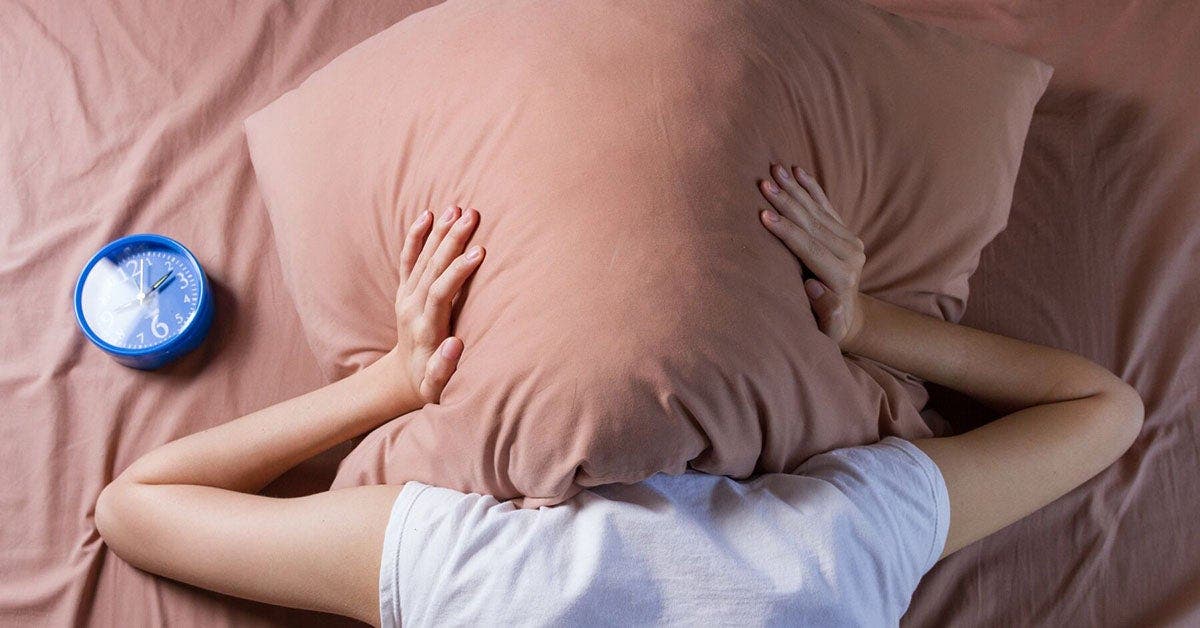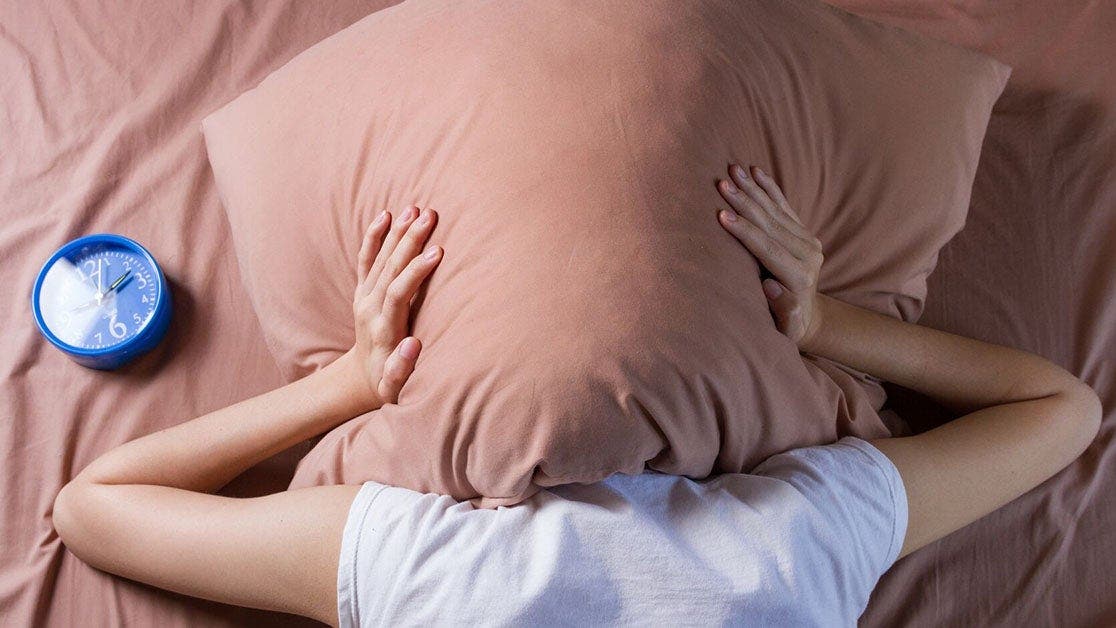How to overcome nighttime disturbances


How to overcome nighttime disturbances
Do you often find your sleep gets disturbed? It might be pets waking you up, or sounds outside your home, or any number of things. Here are some tips for overcoming any nighttime disturbances that are disrupting your sleep, plus advice for ensuring a good night’s rest.
“Everyone wakes four [to] six times a night (usually at the end of a sleep cycle),” says Dr. Lynelle Schneeberg, a psychologist, professor and author who is director of Behavioral Sleep Program at Connecticut Children's Medical Center.
But we can of course, also be woken up by noises, nightmares and the like, she adds.
“One of the most common reasons people wake up in the middle of the night is because their bedroom is too warm, or they are using too heavy of a blanket,” says Dr. Kent Smith, founding director of Sleep Dallas, a dental sleep medicine practice. “Most people sleep best when their bedroom temperature is between 60 and 67 degrees Fahrenheit [15.5 to 19 Celsius]. It’s best to sleep in sheets and pajamas made from cool, breathable materials like cotton or bamboo.”
Other common sleep disturbances that can have a negative effect on sleep quality include our nighttime routine, our partner’s bedtime habits and our sleeping environment, Smith adds. “Underlying sleep disorders, such as undiagnosed and untreated sleep apnea can also have a negative effect on sleep.”
After waking up in the night, it may or may not be easy for you to fall back asleep. That may depend on what woke you up in the first place, and what kind of sleeper you are.
“… if you can fall asleep easily at bedtime, you are likely to be able to get right back to sleep after a waking,” Schneeberg says. “The exception would be if the noise had to do with a child who had difficulty getting back to sleep (because then the child might need some help from you) or if your waking was due to a nightmare (because then we sometimes need to ‘change the channel’ for a while to be able to settle back down).
“Children can be a different story,” she adds. “If a child becomes used to having a parent’s help to get to sleep the first time, sometimes the child cannot get back to sleep without the parent’s help again. For example, if a child is rocked to sleep or has her back rubbed to fall asleep, she might need this same type of help again to return to dreamland. That’s why it can be a good idea to help a child learn to self-soothe to sleep at bedtime.”
Tips for overcoming sleep disturbances
- White noise: “White noise can be useful sometimes to block ambient or neighbourhood noise,” Schneeberg says.
- Blackout curtains: “Blackout curtains can help some people sleep in a bit longer in the morning,” Schneeberg points out.
- Change the channel: If a nightmare woke you up and you need to “change the channel,” to feel better, Schneeberg suggests reading for a while or getting up for a drink of water.
- Keep your bedroom and body as cool as possible: As Smith points out, you want to aim for a bedroom temperature of between 15.5 and 19 C and use pajamas and sheets that are cool and breathable.
Now, whether you’re plagued by nighttime disturbances or not, ensuring good quality sleep is a vital part of health.
“While poor sleep is irritating in the short term, long-term sleep deprivation is linked to serious health problems such as obesity, diabetes, high blood pressure, heart disease, Alzheimer’s, and stroke,” Smith says.
Here are some tips from both our experts to make sure you get a good night’s rest every night.
Tips for quality sleep
- “No caffeine after noon. Caffeine is a stimulant, its job is to keep you awake!” – Smith
- “No alcohol four hours before bedtime. Up to 20 per cent of the population uses alcohol as a sleep aid. And while it is a depressant, it does not mean that will ensure a good night’s sleep. Alcohol inhibits REM sleep due to the fact that the body spends more time in deep, slow wave sleep to metabolize the alcohol. Alcohol causes muscles to relax and can actually cause sleep breathing conditions to escalate. Alcohol also affects the circadian rhythm, so your internal schedule will be off.” – Smith
- “Avoid late-night meals. Bedtime is when your body should be slowing its metabolic processes. Eating food will start the processes back up and interrupt the body’s recovery process. It could also cause gas pains and general abdominal discomfort while you sleep.” – Smith
- “Avoid smoking and other tobacco use. Nicotine is also a stimulant, so smoking or using another tobacco product too close to bedtime will hinder your ability to fall and stay asleep.” – Smith
- “Shut off devices about an hour before bed (and block the blue light on your devices from dinner time on).” – Schneeberg
- “Keep your bedroom clutter-free and try to not read the news or use social media or work once you are in your bedroom. It’s also a good idea to have a ‘news fast’ from dinner time on, if possible.” – Schneeberg
- “Keep something on your bedside table that you can use to distract yourself for a few minutes if you wake up at night and can’t get back to sleep (an e-reader set to the ‘night’ setting, a book and book light, a podcast and so on).” – Schneeberg
- “Design a relaxing bedtime routine that you use each night (like having a light snack, changing into pajamas, washing your face, brushing teeth, and reading for a few minutes in bed).” – Schneeberg
- “Sleep in total blackness. If that is not possible, wear an eye mask. Any source of light will stimulate alertness, which will slow the production of melatonin.” – Smith
- “Keep your bedtimes and rise times consistent seven days a week and keep any naps to a half hour or so at most (and only in the afternoon).” – Schneeberg
